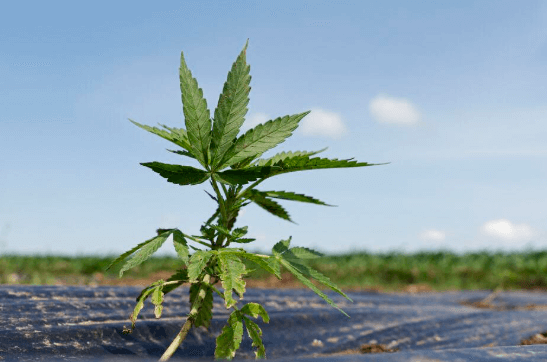Is Cbd Legal in Wisconsin

The legal status of CBD in Wisconsin is a nuanced topic that requires an understanding of both federal and state regulations. Under the 2018 Farm Bill, hemp-derived CBD products containing less than 0.3% THC are permitted, but Wisconsin has implemented specific guidelines that govern their cultivation, sale, and distribution. As the landscape of CBD legislation continues to evolve, it’s crucial for consumers and businesses alike to stay informed about potential changes and compliance requirements. What implications might these regulations hold for the future of CBD in the state?
Overview of CBD Legislation
The legal status of cannabidiol (CBD) in Wisconsin is primarily governed by both state and federal legislation, which has evolved significantly in recent years to reflect changing perceptions and scientific understanding of hemp-derived products.
Despite persistent CBD misconceptions, research increasingly supports its health benefits, prompting lawmakers to reevaluate regulations.
This shift signifies a broader acceptance of CBD as a viable therapeutic option.
See also: Is Cbd Legal in Virginia
Federal Laws on CBD
Federal laws regarding CBD are primarily shaped by the 2018 Farm Bill, which legalized hemp-derived products containing less than 0.3% THC.
This legislation establishes a framework for the regulation of CBD at the national level.
It influences CBD market trends and guides federal enforcement policies, fostering an environment that promotes innovation while ensuring compliance within an evolving landscape of consumer demand and regulatory oversight.
Wisconsin State Regulations
Wisconsin’s regulations surrounding CBD are primarily shaped by the state’s stance on hemp-derived products and medical cannabis laws.
The legal framework allows for the cultivation and sale of hemp-derived CBD, provided it meets specific THC content requirements.
Additionally, the state’s medical cannabis laws create a distinct environment for the use of CBD within therapeutic contexts, further complicating the overall regulatory landscape.
Hemp-Derived CBD Regulations
In Wisconsin, hemp-derived CBD regulations are shaped by both state legislation and federal guidelines, establishing a framework for cultivation, processing, and sale.
The state permits hemp cultivation under specific licensing requirements, ensuring compliance with THC limits.
Furthermore, guidelines for CBD extraction emphasize safety and quality, fostering a legal environment that promotes consumer access while maintaining regulatory oversight in this evolving market.
Medical Cannabis Laws
The legal framework surrounding medical cannabis in Wisconsin is defined by specific regulations that govern patient access, physician recommendations, and the permissible forms of cannabis use.
These laws aim to enhance patient access to the medical cannabis benefits recognized for various health conditions.
However, limitations persist, often constraining the potential advantages that could be afforded to patients seeking alternative therapeutic options.
Types of Legal CBD Products
In Wisconsin, various types of CBD products are legally available for consumers, primarily derived from hemp.
These include hemp-derived CBD oils, which offer versatility in use; CBD edibles and gummies, which provide a convenient consumption method; and topical CBD products, designed for localized application.
Each category presents unique benefits and considerations, reflecting the growing market and consumer interest in cannabinoid-based wellness solutions.
Hemp-Derived CBD Oils
Hemp-derived CBD oils encompass a range of legal products that vary in concentration, formulation, and intended use, reflecting the growing market’s diversity and consumer demand.
These oils are often praised for their potential health benefits, including pain relief and anxiety reduction.
Various extraction methods, such as CO2 and ethanol, influence the purity and efficacy of the final product, ensuring quality for consumers.
CBD Edibles and Gummies
What types of CBD edibles and gummies are legally available in Wisconsin, and how do they differ in terms of formulation and concentration?
Various CBD edibles, including gummies, offer diverse CBD flavor options and concentrations, catering to different preferences.
Consumers should follow CBD dosage recommendations to ensure effective use, balancing personal needs with the product’s potency for optimal results in their wellness journey.
Topical CBD Products
Topical CBD products have emerged as a popular category within the legal landscape of CBD in Wisconsin, offering targeted relief through various formulations designed for direct application to the skin.
These topical applications, including creams and balms, are praised for their potential skin benefits, such as reducing inflammation and alleviating discomfort.
Their localized approach allows users to experience the therapeutic effects without systemic absorption.
Possession and Usage Guidelines
In Wisconsin, possession and usage of CBD products are subject to specific regulations that delineate permissible quantities and forms, ensuring compliance with state laws.
Individuals must be aware of legal implications surrounding personal usage to avoid potential penalties. This includes adhering to designated limits on THC content and ensuring products are sourced from legal channels, promoting responsible consumption while safeguarding personal rights.
Business Regulations for CBD
Wisconsin’s regulatory framework for CBD businesses encompasses a range of stipulations that govern licensing, manufacturing, labeling, and distribution to ensure compliance with both state and federal laws.
Business licensing is essential for legal operation, while effective marketing strategies must align with regulatory standards to avoid misrepresentation.
Adhering to these regulations fosters a transparent market, promoting consumer trust and supporting the freedom of entrepreneurial endeavors.
Future of CBD Legality in Wisconsin
The evolving landscape of CBD legality in Wisconsin is likely to be influenced by ongoing legislative discussions and changing public perceptions regarding hemp-derived products.
Future trends indicate a potential easing of restrictions, aligning with market predictions that suggest increased consumer demand.
As advocacy continues and scientific research expands, stakeholders may witness a transformative shift toward broader acceptance and regulation of CBD.
Conclusion
In conclusion, the legal landscape for CBD in Wisconsin reflects a significant shift in agricultural policy, reminiscent of the Prohibition era when legality hinged on regulatory frameworks.
Current regulations permit the cultivation and distribution of hemp-derived CBD products with less than 0.3% THC, ensuring consumer access while necessitating compliance with state laws.
As legislative discussions progress, the future of CBD legality may evolve, potentially influencing both market dynamics and public perception in the state.
